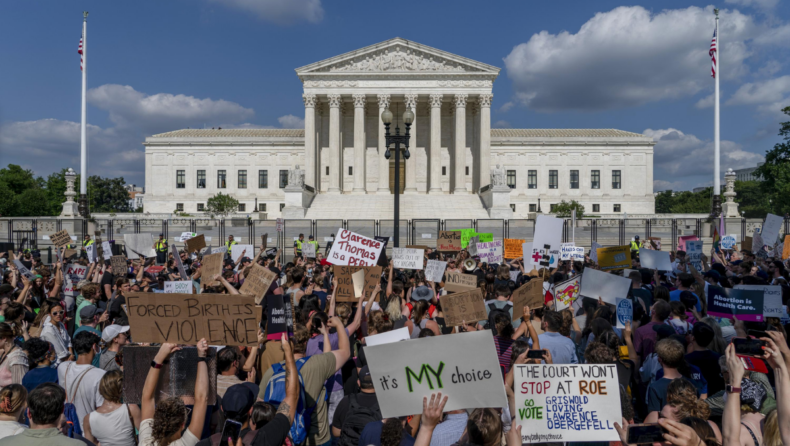
Texas Supreme Court overturned a lower court order that said clinics could continue to perform abortions, on Friday. Some doctors resumed seeing patients just days after the repeal of Roe v. Wade.
According to the ACLU, the order does not allow for criminal enforcement of Texas’ virtual abortion ban for the time being. But it does pave the way for civil enforcement. It was unclear whether Texas clinics that had resumed seeing patients this week would do so again. A hearing has been set for later this month.
The whirlwind of Texas clinics dissuading patients, rescheduling them, and now potentially cancelling appointments again. All this within a week exemplified the confusion and scrambling that has gripped the country since Roe v. Wade.
An order issued earlier this week by a Houston judge reassured some clinics that they could temporarily resume abortions up to six weeks into pregnancy. Following that, Texas Attorney General Ken Paxton asked the state’s highest court, which is composed of nine Republican justices, to temporarily stay the order. After the order was issued Friday night, Marc Hearron, attorney for the Center for Reproductive Rights, said, “These laws are confusing, unnecessary, and cruel.”
Clinics in Texas had stopped performing abortions in the state of nearly 30 million people. As after the United States Supreme Court overturned Roe v. Wade last week. This effectively ended the constitutional right to abortion. Texas had technically had an abortion ban in place for the previous 50 years while Roe was in effect.
Abortion providers across the U.S. are struggling in the changing legal landscape
Abortion providers and patients across the country were attempting to navigate the changing legal landscape surrounding abortion laws and access, on Friday. In Florida, a law prohibiting abortion after 15 weeks of gestation went into effect Friday. The day after the judge declared it a violation of the state constitution.Also, he would sign an order temporarily blocking the law the following week.
The ban could have far-reaching consequences in the South, where the state has greater access to the procedure than its neighbours. In Kentucky, abortion rights were lost and reclaimed in days. A so-called trigger law, which imposed a near-total ban on the procedure, went into effect last Friday. But a judge blocked it Thursday. Therefore, allowing the state’s to have only two abortion providers to resume seeing patients for the time being.
The legal wrangling is almost certain to continue causing havoc for Americans seeking abortions in the near future. Thus, with court rulings capable of upending access at any time and an influx of new patients from out of state overwhelming providers. Even when women travel outside of states where abortion is illegal, they may have fewer options for terminating their pregnancies because the threat of prosecution follows them.
Planned Parenthood
Planned Parenthood of Montana announced this week. Hence, It will no longer provide medication abortions to patients who live in states where abortion is illegal. In order to minimize the potential risk for providers, health centre staff, and patients in the face of a rapidly changing landscape.
Planned Parenthood North Central States, which provides the procedure in Minnesota, Iowa, and Nebraska, advises its patients that if they live in a state that allows abortions. They must take both pills in the regimen.
Planned Parenthood North Central States spokeswoman Emily Bisek said that in an “unknown and murky” legal environment. They decided to tell patients that they must be in a state where it is legal to complete the medication abortion. It requires taking two drugs 24 to 48 hours apart. She predicted that most patients from states with bans would choose surgical abortions.
Since the United States, Food and Drug Administration approved mifepristone- the main drug used in medication abortions in 2000. Abortion pills have been the most common method of terminating a pregnancy.
Access to the pills has become a key battleground in abortion rights. The Biden administration preparing to argue that states cannot prohibit a medication that has been approved by the FDA. Kim Floren runs the Justice Empowerment Network abortion fund in South Dakota. She believes that the development will further limit women’s options. This will likely lead to more women travelling to Colorado for abortions.
“The purpose of these laws, in any case, is to scare people,” Floren stated. “The logistics of actually enforcing these are a nightmare, but they rely on people being scared.” There is concern that the order is only temporary. Thus, the law will be reinstated later, adding to the confusion.













